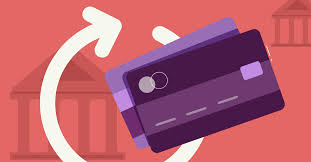Chargeback Forex Fraud, In recent years, the rise of online trading platforms has made forex (foreign exchange) trading more accessible to the public. While this accessibility has introduced countless people to lucrative opportunities, it has also created a fertile ground for fraudulent schemes. One type of fraud that is increasingly common in the forex trading world is chargeback forex fraud. This article will explore what chargeback forex fraud is, how it works, and steps you can take to protect yourself from falling victim to it.
What is Chargeback Forex Fraud?
Chargeback forex fraud refers to a scam involving deceptive tactics by either forex brokers or traders in the context of chargebacks. A chargeback is a reversal of funds initiated by the bank or payment provider after a customer disputes a transaction. In legitimate cases, it is used to recover lost funds due to unauthorized transactions or services not rendered as promised. However, in the forex world, chargeback fraud can occur in two primary ways: broker-related fraud and trader-related fraud.
1. Broker-Related Chargeback Fraud
Some unscrupulous forex brokers set up elaborate scams to defraud traders. They lure clients into depositing large sums of money into their trading accounts with promises of high returns or guaranteed profits. These brokers may manipulate trades or impose fake fees, making it nearly impossible for traders to withdraw their funds.
When traders realize they’ve been scammed, they often attempt to recover their losses through a chargeback request with their bank or credit card provider. However, fraudulent brokers may provide fake documentation to dispute the chargeback claim, making it difficult for victims to get their money back.
2. Trader-Related Chargeback Fraud
Chargeback fraud isn’t always broker-related. Sometimes, traders themselves engage in fraudulent chargeback practices. This happens when a trader intentionally loses money on a forex trading platform and then falsely claims to their payment provider that the broker did not provide the services or that the transaction was unauthorized. By doing this, they attempt to get their money back through a chargeback, even though they willingly participated in trading activities.
This form of chargeback abuse is illegal and can lead to legal consequences, including fines and account closures. It also harms legitimate brokers and tarnishes the reputation of the forex trading industry as a whole.
How to Protect Yourself from Chargeback Forex Fraud
Whether you are a forex trader or a broker, understanding how to avoid and deal with chargeback forex fraud is crucial. Here are some steps to protect yourself:
1. Choose a Reputable Forex Broker
The first step in avoiding broker-related chargeback fraud is choosing a legitimate and trustworthy broker. Look for brokers that are regulated by respected financial authorities, such as the Financial Conduct Authority (FCA) in the UK, the Australian Securities and Investments Commission (ASIC), or the U.S. Commodity Futures Trading Commission (CFTC). Regulated brokers are required to adhere to strict standards, reducing the risk of fraudulent behavior.
2. Verify Withdrawal Policies
Before investing, thoroughly review the broker’s withdrawal policies. Scam brokers often have unclear or convoluted withdrawal processes to trap traders’ funds. Make sure that you understand how withdrawals work, and test the withdrawal process with a small amount before making larger deposits.
3. Keep Records of Transactions and Communication
One of the most effective ways to safeguard yourself is by maintaining thorough records of your trades, deposits, and communications with your broker. If you ever need to file a chargeback, these records will serve as crucial evidence to support your claim.
4. Understand Chargeback Time Limits
Each payment provider and bank has specific time limits within which a chargeback request can be filed. Familiarize yourself with these time frames and act quickly if you believe you have been defrauded. Failing to file within the designated period may result in a lost opportunity to recover your funds.
5. Be Honest in Your Chargeback Claims
If you’re a trader, avoid the temptation of filing false chargeback claims. While it may seem like an easy way to recover your money, dishonest chargeback claims can have serious legal and financial consequences. Additionally, if you engage in this form of fraud, it could result in blacklisting by forex brokers, making it difficult to trade in the future.
What to Do If You Suspect Chargeback Forex Fraud
If you suspect that you’ve been a victim of chargeback forex fraud, it’s important to take immediate action. Here’s what you can do:
- Contact your payment provider: Notify your bank or credit card company as soon as possible to initiate a chargeback request. Provide them with all relevant documentation to support your claim.
- Report to regulatory authorities: If you suspect that the broker is operating fraudulently, file a complaint with the relevant regulatory authority in the broker’s jurisdiction. This may help in investigating the broker and preventing further fraud.
- Seek professional help: In cases of large financial losses, consider seeking assistance from legal experts or recovery firms that specialize in forex fraud. They can help navigate complex legal procedures and increase your chances of recovering lost funds.
Conclusion
Chargeback forex fraud is a growing concern in the world of online trading. Whether you’re a trader or a broker, it’s essential to be aware of the risks and take proactive steps to protect yourself. By choosing reputable brokers, understanding your rights, and acting quickly in case of fraud, you can minimize the chances of falling victim to these schemes. Remember, forex trading should be approached with caution, and doing your due diligence can go a long way in protecting your investments.
You Might Also Like These:
The Importance of a Cyber Disaster Recovery Plan Template
Christopher Mullen’s Cyber Addiction Recovery Center: A Beacon of Hope for the Digital Age
What Is the Main Purpose of Cyber Incident Recovery?
Cyber Incident Management and Recovery Plan: A Strategic Approach to Resilience
Forex Frauds: Protecting Yourself from Scams in the Foreign Exchange Market

